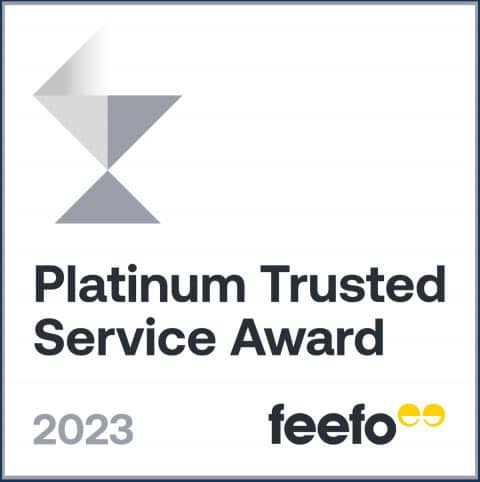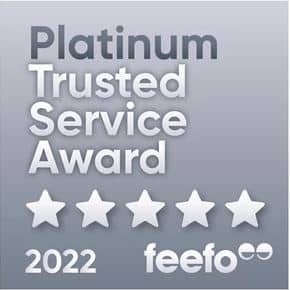Home > Business Loans > Truck Loans
Truck Loans
Compare low-rate truck & equipment finance for sole traders, individuals, partnerships and companies with Savvy.
Author
Savvy Editorial TeamFact checked
Truck loans done right
Talk to Savvy about a structured truck financing solution today. Savvy finances trucks for companies Australia Wide and it’s a core product savvy offers which it delivers on time and time again. We are experts at all types of truck loans and help you get best and low finance rates.
Our specialist commercial finance professionals understand business, finance, cash flow, financials, company & business structures and everything that’s required to provide the right business solution.
Tax effective
At Savvy our consultants will tailor a business solution for you taking into consideration your tax, cash flow and business requirements. A commercial consultant from savvy will place you within the right structure, driving your dollar further and definitely saving you money. Our aim is to become an extension of your business, a partner that will help your business grow by providing market leading innovative financing solutions, quick and easy.
At savvy we can provide truck finance for all types of trucks plus vans, commercial utilities, prime-movers, buses, tankers, cranes, forklifts and more.

See how we can help you with your truck finance
Flexible loan terms
Fixed interest rates
Savvy offers operating leases, hire purchases and a competitive range of equipment finance products.
Low monthly repayment
At Savvy, you can compare competitive finance rates through our panel of trusted Australian lenders.
Flexible residuals
Tax effective
Access to multiple lenders
What our customers say about their finance experience


Savvy is rated 4.9 for customer satisfaction by 76 customers.

Your truck finance questions answered
Yes! We can find a truck loan for both new and used trucks and heavy movers. This is subject to some conditions – ask your consultant for more.
The primary difference between a hire purchase and chattel mortgage is which entity takes ownership of the vehicle. Your financier “owns” the truck in a hire purchase, whereas ownership passes to you in a chattel mortgage. Your accountant or financial controller will advise which is best for you.
Yes – with a chattel mortgage or hire purchase, you can purchase a truck without any collateral or deposit. In fact, you can finance extras such as insurance or servicing in the initial loan package.
Yes – we can help businesses of all sizes with finance for an entire fleet of trucks, subject to meeting certain criteria. Ask your consultant for more.
We still work hard to find competitive commercial loans for businesses with bad credit who meet the criteria in place with our specialist lending partners.
Yes – Savvy’s network of lenders offer leasing options such as an operating lease, finance lease and other flexible leasing products that suit your business.
Yes – your business can purchase the truck by paying out the residual value at the end of any lease term. Or, you can trade it in for a new lease or walk away.
Yes – we finance all types of heavy movers and trucks for business purposes. If it’s big and it moves, we can finance it.
We finance forklifts, tankers, cranes, prime movers and other heavy plant for heavy industry, construction, mining, and more. Not on the list? Ask your friendly consultant for more.
Yes – we help our customers find truck loans tailored around their needs. You can make repayments to a special schedule so you can keep cash flowing.
Helpful truck finance guides
Zero percent finance – does it cost more?
Zero doesn’t mean zero – especially when it comes to truck finance. Opting for “zero” or “no” interest loans can end up costing you and your business more. For starters, you won’t be able to negotiate a lower price. Every “zero” percent finance package comes with higher fees; even for paying off the loan early. Dealers only sell older models, so you won’t even get the best model on offer. Some dealers might entice you with lower repayments, but read the fine print first. They may artificially keep repayments low by forcing a balloon payment at the end of the loan term. Finding your own finance and haggling with a dealer can save you thousands – if not tens of thousands – of dollars.
Should you lease or buy a truck?
It’s an age old debate – should you lease or buy your next truck? Buying a truck is good for you come tax time. Straight off the bat, you can claim depreciation, tax and other benefits such as the fuel input tax credit. However, if you run a seasonal business or are looking to expand quickly, opting for operating or finance leases might be the way to go. This gives you the opportunity to take on more trucks for a limited time. In many lease agreements, maintenance and other expenses may be included in your repayments. However, at the end of the lease, you will not have created an asset. On the other hand, there’s no depreciation hit! Ask your accountant what course is best for you.
Buying new vs used trucks
Trucks are no small expenditure; for many businesses that rely on them, it’s their primary asset. Buying used trucks might sound tempting, if you want to save on initial costs. However, depreciation will hamper your resale value, and long-term operation. Buying new means high residual value in your asset, and lower maintenance costs as your truck comes with new warranties, parts and other modcons. It also means they are more reliable, which could save you on certain types of business insurance. A well-maintained truck can last for years, or even decades. Sometimes buying new will cost more upfront, but lend itself to higher resale value later.
Choosing the right truck
Before buying, you must ask what problem your truck solves in your business. If you haul heavy loads, perishable foodstuffs, or liquids, the answer is clear-cut. However buying a smaller semi-trailer to begin with only to find out your hauling capacity is running out due to higher demand for your services, you will miss growing your business. You need to think about growth in your business, and your truck should solve any potential problems right from the start. Having a clear idea of how your truck will make money will also help you streamline your loan application process, too!.
Your commercial finance options
Purchasing a car or another asset for your business? Chattel mortgages function in the same way as a standard car loan but offer a range of tax benefits to save your business money in the process.
Many companies require highly valuable equipment to help them operate, but they don’t come cheap. Equipment finance can help your business manage the cost of valuable plant or machinery.
If you’re looking to purchase a truck for your business, you can access specialist financing to help you buy it the right way. Truck finance can help you buy the vehicle you need, big or small.
You can take to the skies with an aircraft lease or purchase. Select your ideal model and repayment conditions and compare offers from trusted lenders to help you find the best rate.
Whether you need a new POS system, computers for your office or an enhanced security network to be installed around the premises, you can find the solutions you’re looking for with technology financing.
Farmers and those in the agriculture need a range of specialised vehicles and equipment to operate. Seeking out agriculture finance could be the solution you need to make the purchase happen.
You may not want to commit to the purchase of your vehicle or equipment just yet. Operating leases come with a variety of key benefits, such as having on-road costs built into your tax-deductible payments.

